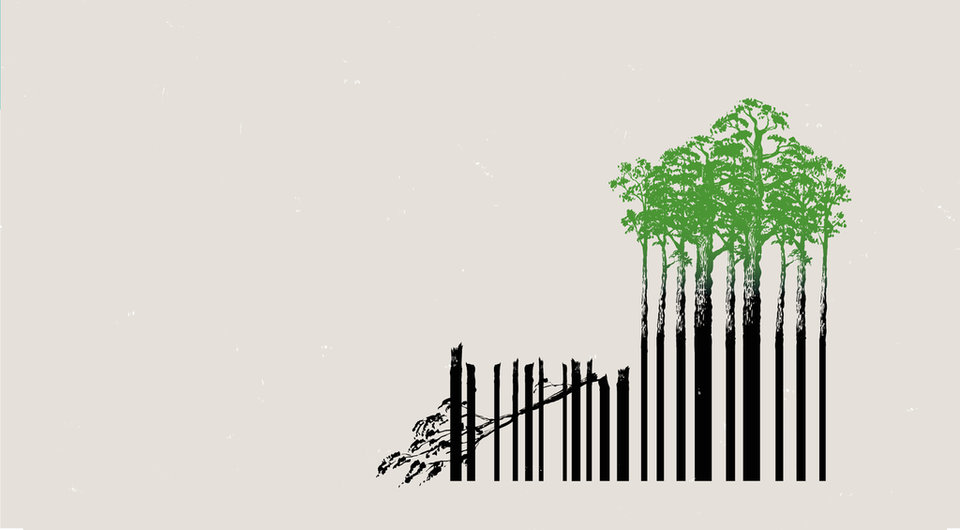
sustainability
Are beverage firms paying enough attention to deforestation?
A new initiative to address deforestation was launched last September by the Consumer Goods Forum involving 17 major manufacturers and retailers ‑ but no drinks companies. Ben Cooper explores whether the beverage sector needs to do more in the area of deforestation.
T
he launch of the 'Forest Positive Coalition of Action' by the Consumer Goods Forum (CGF) represents a reset of the global FMCG trade body's deforestation agenda after the high-profile failure to achieve its 2020 'net deforestation' target.
From the drinks industry's standpoint, however, the most notable aspect of the initiative is that not one of the 17 manufacturers and retailers signing up to the coalition is a beverages company.
Drinks manufacturing is represented in the coalition through the involvement of a number of food companies with significant beverage interests, notably Danone, Nestlé, Mars, PepsiCo, and Unilever.
However, there are as many as 12 other CGF members that only or predominantly produce beverages, including The Coca-Cola Co, Anheuser-Busch InBev, Kirin, and Heineken, that have not joined.
Are drinks firms at risk?
Asked by just-drinks whether this leaves the beverage sector under-represented in the coalition, CGF social sustainability director & coalition coordinator Didier Bergeret says: "The coalition is always open to new members, and the current members do supply or sell a diverse range of consumer goods, including beverages, which makes their efforts to supply forest positive commodities impactful on a wide scale."
The aim of the coalition is for its members to work collectively to accelerate systemic efforts to remove deforestation, forest degradation, and conversion from the key supply chains of palm oil, soy; and paper, pulp, and fibre-based packaging.
Clearly, the lack of drinks representation is in no small part due to its comparatively low exposure to palm oil and soy, the two food crops most associated with deforestation.
However, like all consumer goods companies, drinks firms could be exposed to deforestation risk from the paper and pulp sector through packaging procurement. Pulp is also a sector where the drinks industry's exposure could increase as more paper-based packaging solutions are developed to replace plastic.
There is still a large risk there for every consumer goods manufacturing company because of their reliance on packaging and shipping.
The pulp and paper sector has historically been – and remains – a significant contributor to deforestation, most notably in Indonesia and, according to pressure group Rainforest Action Network (RAN), is one of the biggest threats to the remaining large peatland and natural forest landscapes in Sumatra and Borneo.
"I think 2020 is a monumental year, not just for achieving no deforestation for palm oil or for soy," RAN forest policy director, Gemma Tillack, says. "It's very important to focus in on how all the CGF members, including those in the beverage sector, can advance this goal, and the pulp supply chain is a huge case where there is the need for progress.”
“There is still growing deforestation for pulp. There is still a large risk there for every consumer goods manufacturing company because of their reliance on packaging and shipping." In addition, certain other agricultural commodities, such as sugarcane and citrus, could expose drinks companies to links with deforestation.
Reputational damage could be significant
The Forest Positive Coalition is, of course, only one initiative, and there are plenty of other sector-specific manufacturers among the 400-plus CGF membership that also chose not to join the coalition.
In fact, six of the companies that had signed the fateful 2010 net deforestation commitment chose not to join the CGF's new deforestation programme, the most significant of these from the beverage sector's standpoint being The Coca-Cola Co.
In its response to just-drinks, Coca-Cola refers to the relatively low exposure of drinks firms to high-risk commodities.
"We support efforts to address deforestation challenges around the world, and we recognise that more needs to be done," a company spokesperson says. "We are not a significant buyer of high-risk commodities, but we are working to minimise the potential impact of our supply chain through the implementation of our 'Sustainable Agriculture Guiding Principles' with our suppliers. We are looking closely at our supply chain to understand potential deforestation risks."
While the exposure of drinks companies to deforestation is significantly lower than that of major buyers of high-risk commodities in the food sector, the risk of reputational damage may still be significant.
RAN is calling for all consumer goods companies to "understand and disclose their forest footprint", according to Tillack. "There needs to be a call to a broader call to action to all of the CGF companies that are exposed – that includes those in the beverage sector."
CGF must rebuild trust
The Forest Positive Coalition, meanwhile, could be a helpful resource for companies that have not yet joined the coalition. "Everything the coalition produces is open source, allowing everyone to access key documents and work on their own Forest Positive activities," Bergeret says.
"The success of the coalition lies in bringing together member companies who are prepared to take action now and have the resources to do so. We welcome interest from any member company who is ready to join our efforts."
With a focus on collaboration, information sharing, and engagement with external stakeholders and government, the coalition is focusing on four key priorities: to encourage suppliers to implement 'Forest Positive' actions across all their commodity operations; to collaborate in addressing forest conservation challenges in key production landscapes; to encourage governments to create an enabling environment for forest conservation, and to ensure transparency and accountability through regular reporting.
The CGF has faced much criticism for the failure to achieve its net deforestation aim, and it will take time to rebuild trust with the NGO sector.
However, the emphasis on immediate action to achieve rapid change at scale and on networking, collaboration, and government engagement, arguably plays to the CEO-led organisation's strengths and could bring its new intervention on deforestation greater success than the last.